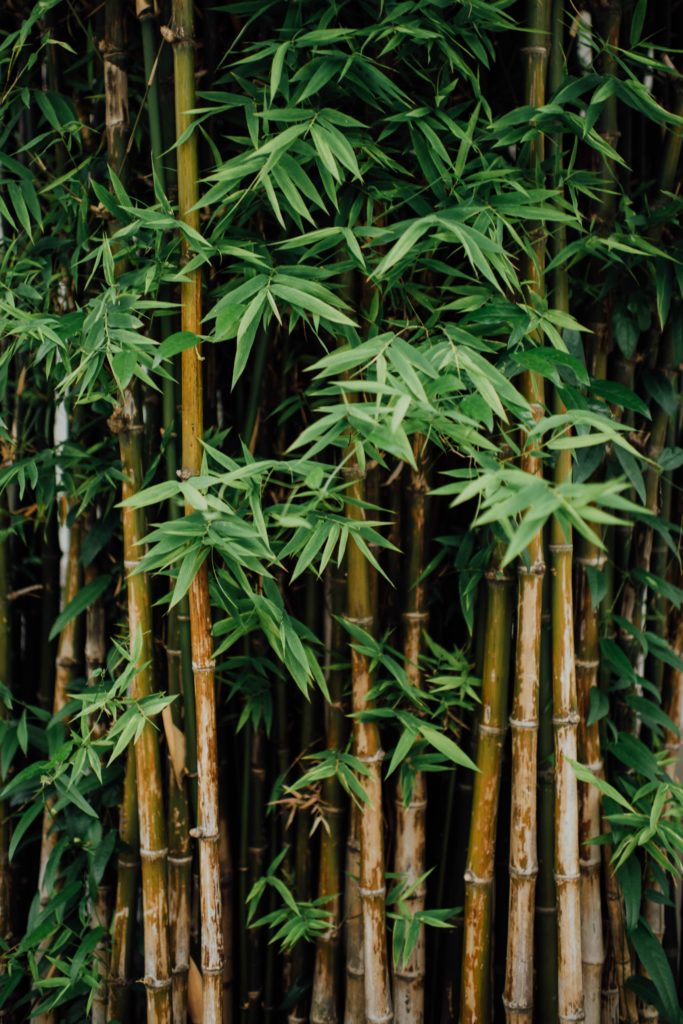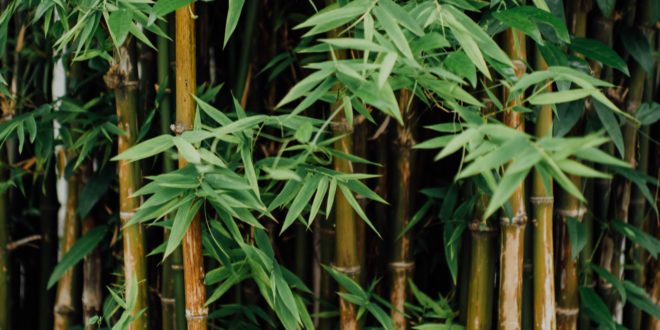 It’s the word on everyone’s lips – and the product tipped to help save the planet. But what is it about bamboo that means we’re now seeing it everywhere from toothbrush handles and cotton buds to drinking straws and light shades? The answers aren’t complicated – and nor is sourcing the products that mean you can help care for the environment, starting from today!
It’s the word on everyone’s lips – and the product tipped to help save the planet. But what is it about bamboo that means we’re now seeing it everywhere from toothbrush handles and cotton buds to drinking straws and light shades? The answers aren’t complicated – and nor is sourcing the products that mean you can help care for the environment, starting from today!
Breath easy
Plants absorb carbon dioxide, the gas which contributes to our planet’s unhealthy rate of warming up. In turn, they release the oxygen we rely on. Some plants are better releasers of oxygen than others, and bamboo is one of them – giving out 35% more of the gas than an equivalent area of hardwood trees.
Organic
Commercial crops, including plantation trees, are consumers of pesticides, herbicides and fertilizers – along with the fossil fuels required to produce these products. Bamboo, on the other hand, is happy to look after itself, so growing it doesn’t require chemicals.
Cut and come again
With very few exceptions, when a timber tree is felled, its life is over. Its roots, which previously held soil in place, die, leaving land susceptible to erosion. Because bamboo doesn’t die when its wands are harvested, its living roots remain in the ground and continue growing, helping stabilise the surrounding land.
When a timber forest is replanted, significant resources are required to clear the land and start planting (and fertilizing) all over again. A harvested bamboo plantation looks after itself and simply grows, unaided, all over again. And while a timber tree may not be ready to fell until at least 5 years after planting, bamboo, which is the fastest growing plant on the planet, can put on an amazing .9 metres of growth in a day, depending on species!
Waste not, want not
Anyone who has ever seen the aftermath of a cleared timber plantation knows just how much of a tree is wasted – and how much smoke goes into the atmosphere when that waste is burned. When bamboo is harvested, there is remarkably little waste, and what isn’t used can often be fed to animals as green or dried fodder.
Unfussy
Bamboo comes in an astonishing variety of species and grows in a wide range of climatic and soil conditions. It can withstand drought as well as monsoon rains, and extremes of heat and cold. This means it can often be grown in areas that are unsuitable for other crops, and where only the poorest can afford to live, ensuring they have access to a livelihood.
Where to buy your bamboo
Now you know about the benefits to the world of buying bamboo, you’ll want to stock up on bamboo products. Fortunately, everyday domestic bits and bobs aren’t difficult to source. Check out health food and organic produce suppliers (and some mainstream supermarkets) for toothbrushes, cotton buds, nail brushes, brush and comb sets and drinking straws. Take bamboo into the kitchen with vege scrubbing brushes, dish brushes and bamboo dishcloths. Pop bamboo eating utensils, beakers and plates into your picnic basket. Check online for the softest of bamboo clothing items. And if you’re looking for baby gifts for new parents, don’t go past bamboo cloth nappies. Best of all, if you’re a gardener, help out the planet by heading to the plant centre for some bamboo varieties to suit your section!
Recycle me!
When your bamboo product is past its best, simply compost it or add it to the firewood pile. If it contains plastic bristles, snip them off and recycle them.









Join the Discussion
Type out your comment here:
You must be logged in to post a comment.